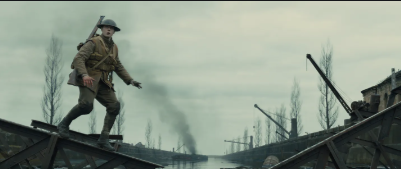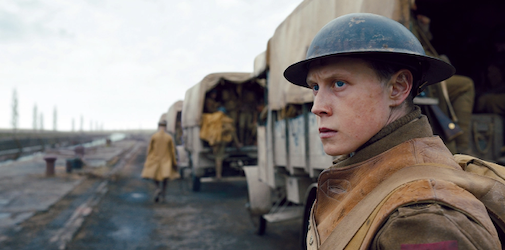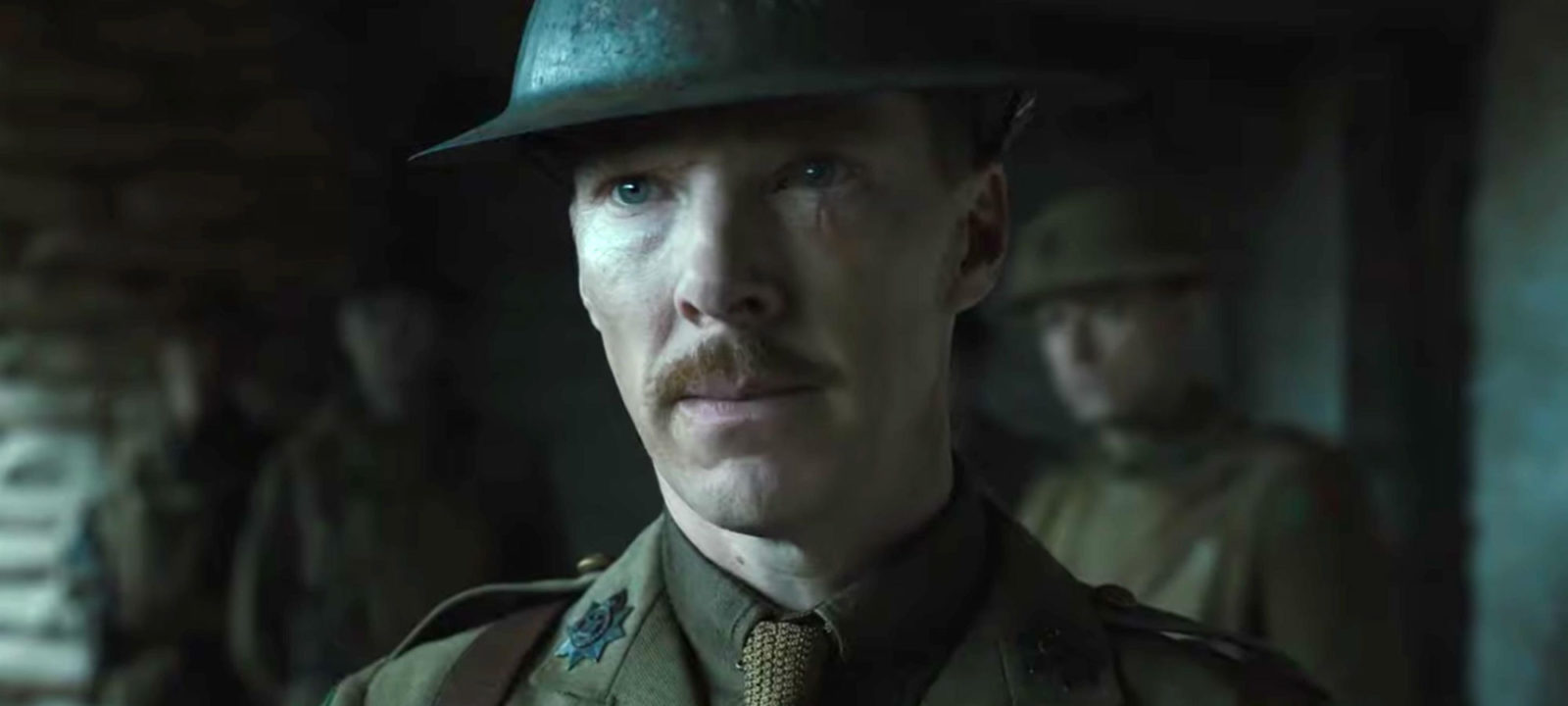The Beautiful Dryness of "1917"
 Thursday, February 6, 2020 at 3:00PM
Thursday, February 6, 2020 at 3:00PM by Lynn Lee

[This article contains spoilers]
“One of the best war films ever made.”
That’s not a critic’s blurb – that’s how my father described 1917 to me the other day. The fact that he and my mother loved the film didn’t surprise me, given that I was the one who recommended it to them. What did surprise me was how much they loved it. It’s not that they haven’t seen many war movies – to the contrary, my childhood and adolescence included a healthy dose of them, from early black and white greats like Grand Illusion to sweeping Hollywood epics like Lawrence of Arabia. Over the years my parents have continued to add films as varied as Das Boot, Gallipoli, Saving Private Ryan, and Master and Commander to their favorites.
So what was it about 1917 they deemed worthy to stand with the classics? My dad cited the cinematography, of course, and the vivid realization of the WWI battlefields and trenches, but he also extolled the “delicacy” and “dryness” of the story. And I think he was on to something there...

While “dryness” may not sound like a compliment, it’s one of my dad’s highest forms of praise for films that deal with weighty subjects. What he means is a kind of restraint that isn’t coldness, a disciplined avoidance of sentimentality and emotional manipulativeness that doesn’t sacrifice sentiment or emotion – a balance, ultimately, between overall detachment and moments of piercing pathos.
1917 achieves that balance by combining the camera’s visceral first-person point-of-view immediacy with the starkest narrative minimalism. The script strips the plot and characters down to the bare essentials – mere outlines that the actors can color in only so much, as Claudio recently and perceptively discussed. All we know about the two protagonists – Schofield (George MacKay) and Blake (Dean-Charles Chapman) – is their names and their mission, and that Blake’s brother is a lieutenant in the battalion they’re trying to save. We don’t learn much more over the course of their journey. Blake’s most salient characteristic is his hopeful naivete, which ends up costing him his life. Schofield, the slightly older and far more reserved of the two, drops more tantalizing hints – references to a medal for valor that clearly means nothing to him, his unexpected familiarity with the charming nonsense verse of Edward Lear – but it’s not until literally the last frame of the movie that he reveals anything about his personal life.
I’d argue this minimalism – embodied in the essential if not literal anonymity of the key players – heightens rather than diminishes the film’s impact. I found myself empathizing with Schofield and Blake in part because it was easier to project myself and my own feelings into their story. (Admittedly this may also be why for some viewers the whole thing just feels like a combat-driven video game, though I think that shortchanges the work the actors are doing, particularly the excellent MacKay.) More broadly, the sparseness of characterization serves as a sobering, Testament of Youth-esque reminder of the toll of WWI: these two young men (boys, really) are at once nobodies and Everymen, representing the legions who died for no clear or compelling reason, remembered only by those who knew them.
Naturally, the most wrenching moments in 1917 turn on one such death without belaboring it. Even while cradling him, rather than offering false assurances that he’s going to be ok, Schofield says simply, “Yes, I think you are” when Blake asks if he is dying. The terseness of his response (the dryness, as my dad might say) is at once the most crushing and compassionate reaction imaginable, one that reflects the reality of the situation: You were probably going to die all along, and now you are, and I must continue without you. It’s bookended by the moment near the very end of the film when Schofield conveys the bad news to Lt. Blake (a terrific Richard Madden), who’s visibly gutted but who silently absorbs the staggering blow and quickly shifts his attention to Schofield’s immediate needs. It’s all very understated and very British, very “keep calm and carry on,” to borrow a mantra from a later war, but it’s also far more moving in its restraint than a more drawn-out or amplified emotional display would have been.

It’s also a message that’s repeatedly underscored by the heavier hitters in the cast who appear just long enough to put their own gloss on it, whether strategic (Colin Firth), cynical (Andrew Scott), resigned (Mark Strong), or bitter (Benedict Cumberbatch). In this respect, 1917 calls to mind scaled-up epics like The Longest Day and Dunkirk that juggle multiple perspectives among a large cast of both generals and grunts, not ignoring individual human toll but not dwelling on it, either, in favor of preserving the 30,000-foot view of a significant historical moment. Yet at the same time, it tips its hat to the focused urgency of individual-rescue, soldiers-bonding-under-fire stories such as Saving Private Ryan, without embracing the full intimacy typical of that sub-genre. What makes 1917 so effective as a war film, and what might secure its Best Picture win this weekend, is this ability to be both things at once – simultaneously subjective and objective, bringing us close while maintaining a certain critical distance from its historical canvas. It zooms out even as it zooms in.



Reader Comments (8)
I surprisingly really enjoyed it,that bit you mention where a key character dies was very sobering with it's hnoesty,I won't be annoyed if it wins.
Lynn -- this article totally convinces me that it's going to win on Sunday night even though I really want Parasite to win. I agree that calling it a video game is reductive though I understand (to an extent) the criticism
I really liked this movie found it both spectacular and deeply moving
Such precision.
Excelent analysis.
Thank you. That was an insightful and well written critique. I loved the film and will see it again.
Forgive the lateness of this reply, but this is such a well written analysis that I felt I owed you a thank you. I agreed with every word. Thanks Lynn Lee, and Nathaniel !
I haven't read this article until now, many thanks Lynn, so well written! I loved "1917" and even if my favorite nominated film was "Parasite" (so I was sooo happy at the end of the ceremony last Sunday!), I think this film would have been a worthy winner and even without the Oscar, in the future many people will think about it as “One of the best war films ever made”, as your parents told you. Great text, thanks again!!!